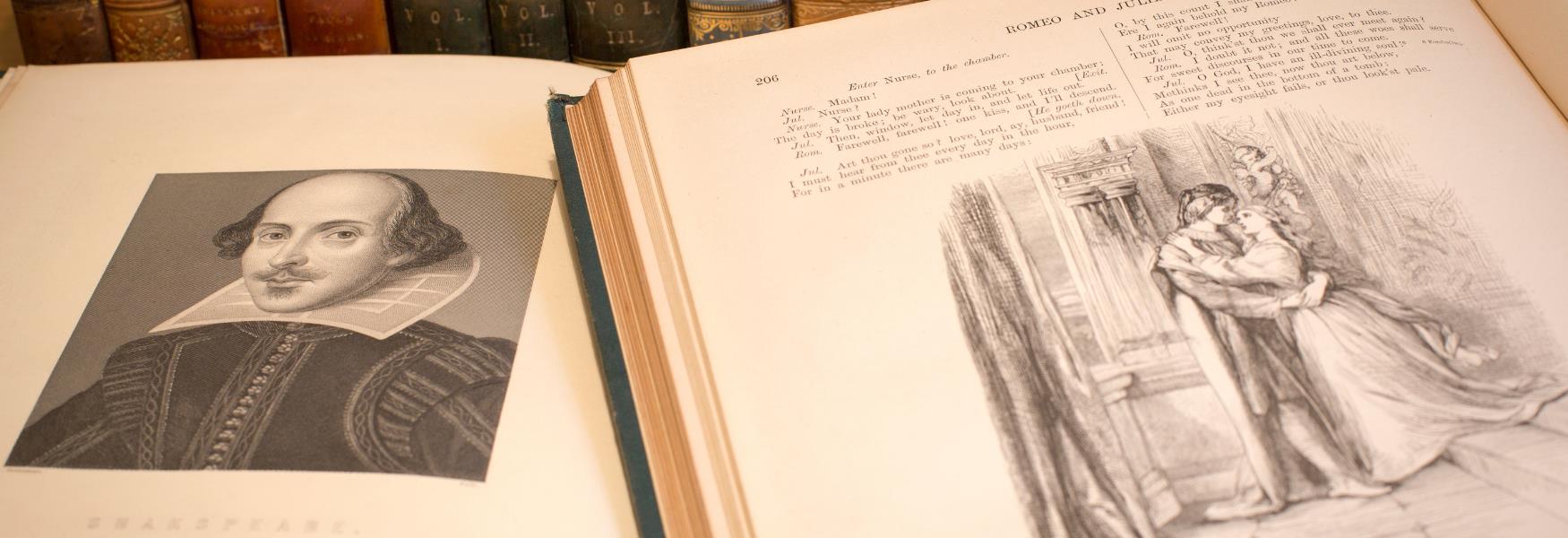To build your own Itinerary, click  to add an item to your Itinerary basket.
to add an item to your Itinerary basket.
Already saved an Itinerary?



You are here: UK History > Literary Heritage
Whether you are someone that likes to occasionally flick through a Philippa Gregory and imagine yourselves in Tudor garb roaming the halls of Hampton Court or whether you are a bibliophile with an extensive list of literary places to visit, you’ll find lots of heritage attractions with literary connections here in Britain. From real life places brought to life by our favourite writers to the former homes of best loved authors, there are locations all over to enjoy.
With the diverse landscape and iconic landmarks that we all know and love, it is no wonder that so many writers took inspiration from the world around them. For those of you that love a bit of gothic horror, head to Whitby Abbey in Yorkshire, where scenes from Bram Stoker’s Dracula took place. Stoker was holidaying in Whitby when inspiration struck for the novel, much of which is set in the Yorkshire town. Incidentally, Whitby is also home to the first named English poet, Caedmon who lived there in the 7th century!
If whodunnits are more your thing, Burgh Island in Devon inspired the setting for Agatha Christie’s And Then There Were None. Originally from Torquay, Christie based several of her novels in the county, including using the one hotel that stands on Burgh Island, just off Bigbury on Sea as the manor house that traps the unfortunate souls in her story. Of course, you’re unlikely to uncover a mystery if you visit the island, but as it is only accessible by sea tractor at certain times of day, it is still an experience!
A number of heritage properties in the UK were once home to well known British authors. As we’ve just mentioned Agatha Christie, why not pop to Brixham, just outside her home town to visit her holiday home Greenway, which is now managed by the National Trust? Similarly, American author, Sylvia Plath, and her poet husband, Ted Hughes,’ former home is also open to the public as is the cottage lived in by Dorset’s Thomas Hardy.
If you head towards the midlands, stop off at Stratford Upon Avon, the birthplace of William Shakespeare. The town centre features several memorials to the Bard and you can even visit his childhood home which has been preserved. Speaking of Shakespeare, his plays are performed to this day and one of the best places to catch one is at the Globe Theatre in London where you can also find a Shakespeare exhibition beneath the stage.
It isn’t just the authors themselves that are memorialised at their former residence. If you’ve ever wanted to step foot in 221B Baker Street, you can! Well, technically, the actual 221B is a bank, but a few doors down is a museum dedicated to Sherlock Holmes and Dr Watson, complete with a Victorian police constable on the door and a real look at the home life of Sir Arthur Conan Doyle’s famous creation.
From the Writer’s Museum in Edinburgh to the Beatrix Potter museum in the Lake District and the Charles Dickens museum in his former home in London, there are plenty of places to find out more about Britain’s literary heritage. Both Bath and Hampshire have museums dedicated to Jane Austen, celebrating her life and work in both regions, as well as giving you the chance to learn more about Regency England.
A number of other places in the UK connected to authors, poets and their work can be visited too. In Edinburgh, the Elephant House Cafè is now a mecca for Harry Potter fans as JK Rowling wrote some of the series there, while Hadrian’s Wall is said to have inspired George R R Martin’s Wall in Game of Thrones. Another author that took inspiration from the world around him was J R R Tolkien, you can walk in his footsteps by visiting Oxford and roaming the grounds of Exeter College at Oxford University. Another spot in the city he would frequent is the Botanic Gardens in the High Street, where it is said a particular tree inspired the Ents that appear in Lord of the Rings.
For those of you who love your myths and legends, none is more well known than that of King Arthur and his knights of the roundtable, you can visit Tintagel Castle in Cornwall where an effigy of Arthur stands guard or Glastonbury Tor in Somerset, which is also connected to Arthurian legend.
© Visit Heritage 2025. All Rights Reserved

.png)



